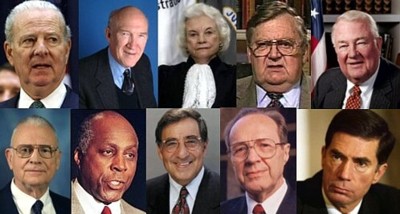Perspective: US troops unsure about Iraqi replacements
BAGHDAD, Dec 6 (Reuters) - As violence in Baghdad has risen towards civil war proportions over the past year, there has been at least one piece of good news for residents of the Iraqi capital -- it's now easier to get out.
"The Road of Death", as the main highway to the airport was once called, has become one of the safer routes around the city thanks to constant patrolling and surveillance by a 350-strong unit of Iraqi police commandos backed by U.S. army advisers.
It is a success the Iraqi forces and their American trainers are keen to show off, a year on from a time when daily attacks along the 8-km (5-mile) tarmac lifeline became a symbol of how U.S. forces were struggling to defeat the insurgency.
But as the bipartisan Iraq Study Group urged the White House on Wednesday to multiply by five the number of such U.S. trainers to 20,000, U.S. officers involved in the transition to Iraqi control accept there have been patchy results.
Major Bernard Brady, leading a U.S. inspection patrol along the road known as Route Irish to the military, has no doubt the Iraqi national police battalion he has worked with for the past 10 months can handle security on their own now.
"This battalion? Absolutely," Brady said during a stop this week at the Iraqi unit's spartan roadside base. But many recruits to other units came from sectarian militant groups: "Some of them got their levies straight out of the militias."
Aside from basic concerns about the abilities of the 300,000 troops and police trained by U.S. advisers since Washington disbanded Saddam Hussein's forces in 2003, U.S. commanders also worry about their divided loyalties to rival sectarian militias.
Ironically perhaps, Brady reckons the unit he works with is helped by the fact many men were trained in Saddam's army.
Other police units have been stood down to purge sectarian kidnap and death squads from their ranks and many in Saddam's Sunni minority still see the police as a hostile Shi'ite force.
MILITIA CONCERN
Colonel Imad, an army officer under Saddam who now commands the 3rd Battalion, 1st Mechanised Brigade of the national police, is wary of the profusion of semi-official forces that may challenge his authority. Briefing Brady, he runs down a list of armed guards from various ministries that have used his road.
"We need to make sure they are not militias," said Imad, who prefers to use only his first name. With each ministry a fiefdom of rival factions in the national unity government, such convoys pose a threat in a country on the brink of all-out civil war.
Read the rest at Reuters/Alternet


<< Home